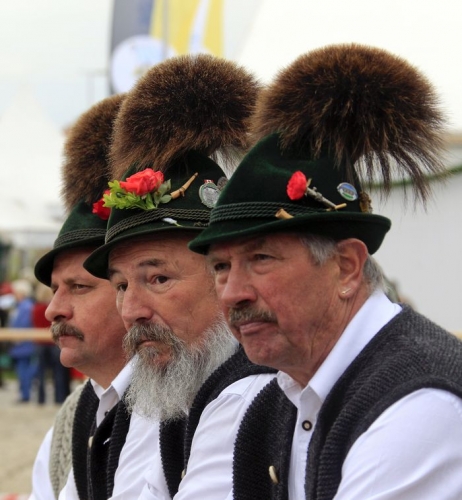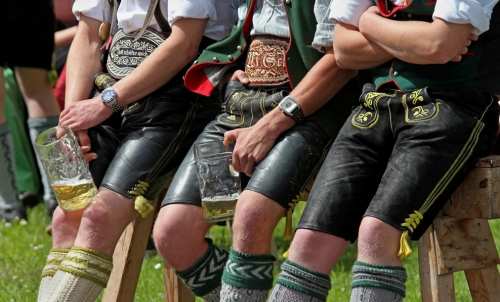It is quite common in our sphere for the focus of analyses to rest on the functionality and the securing of power mechanisms in a society, both inside and outside of government. The interpretation of these mechanisms and how they developed are generally elucidated through the lens of certain macrohistorical events and trends which have existed in the West for several centuries. However, history does not exist in a vacuum, and a thorough analysis of these events cannot neglect to consider the characteristics of the “human material” involved in these trends. Doing so will leave explanatory power on the table that could be applied to understand these events more fully, and thus to learn more precise lessons from them.
One of our fundamental goals is to seek to restore a socially stable order. To this end, there a number of critiques of democracy and other factors which divide power and create unstable social and political circumstances. To fully encompass this goal, it is necessary to take into account sociological and ethnographic factors which are not always reflected in purely formalistic analyses. I would argue that one of the primary factors of interest should be that of ethnicity and its interplay both within and between groups.
First, some definitions are in order. “Ethnicity” is a term that primarily refers to commonalities shared within human groups, which serve to define the “in-group” over and against “out-groups.” Ethnicities center around “ethnic markers,” such as language, religion, morals, traditions and customs, patterns of daily living, and so forth. Often, ethnicity is delineated through the use of various “ideological” indicators (e.g. common mythology, common descent from an eponymous ancestor), the acceptance of which helps to determine group membership. While phenotype can be included in the set of markers, it is not usually a primary determinant and is most often not what principally defines an ethnie.
It is true that members of the same ethnie will almost always share similar phenotypic expressions (which are not limited merely to skin color, however). It is likewise true that phenotypic distinctions can serve as “in/out-group” markers, especially across metaethnic faultlines. Nevertheless, “race” as a modernistic, purely biological and genetic concept, is not what is being discussed here. Rather, commonality of custom, language, religion, and psychology are at issue, and these have served for so long to define differing groups of people that they are the very quintessence of “tradition.”
It is widely recognized within the social sciences that shared ethnicity is one of the single most powerful organizing principles that exists. Ethnicity has played a role in helping to be organize and distinguish between groups from our tribal beginnings. It is something that has been hardwired into the human psyche for thousands of years, dating back to even before the rise of our first truly agrarian civilizations.
The reason all of this is important hearkens back to what was said earlier about the goal of reestablishing a stable social order. It is through the concept of ethnicity that “collective solidarity” (closely related to the Khaldunian concept of asabiyyah in agrarian societies) is primarily expressed. Collective solidarity is a (potentially) quantifiable measure of the capacity for the members of a social body to work together solidaristically towards the achievement of common goals and purposes. It is well-known that collective solidarity is much more easily achieved within groups of people who more readily identify with each other as a result of shared ethnicity. Conversely, closely proximate diversity tends to breed mistrust and a lower willingness to work together for a common good. This solidaristic behavior with co-ethnics is much stronger than for artificial groupings centered around shared economic interest or hobbies, such as corporations and fraternal organizations.
Those concerned with true social stability must work toward the establishment of rational ethnostructures that will facilitate, rather than hinder, collective solidarity. This implies a rejection of abstract civic nationalism and the “multicultural” state, as well as rejection of the sort of immigration policies and structural power-distributing institutions which would encourage multiculturalism. Keep in mind, of course, that empires in which an aristoclade has established imperial control over its neighbors, but is not actively trying to co-mingle them, do not necessarily come within the purview of this analysis.

The power of collective solidarity can easily be seen in the modern Western experience. Certainly, collective solidarity is something that waxes or wanes within individual ethnies over time. Collective solidarity will increase when the core elite element within an ethnie exhibits unity among itself and shares goals and ideology, which it then leads its co-ethnic commons to act upon. Usually, collective solidarity increases due to several collaborating factors, such as a shared struggle against an external enemy, a low ratio of population density to shared resources (which reduces intragroup competition), and the proximity of vastly different ethnic groups across a shared border.
Conversely, collective solidarity declines when an ethnie’s elite core is degenerate, divided, or no longer sees itself as sharing a common destiny, identity, and purpose with its co-ethnic commons.
The rise of the West coincided with a high level of collective solidarity within the various Western ethnies. Each nation shared a unity of purpose and a willingness to work together for common goals (usually national expansion or other forms of national glory). This unity was shared between the elite and common elements, and this was true even given the greater general tendency towards individualism found among northwestern European populations (but which also existed among other Europeans, as well).
The decline of the West has coincided with a palpable decline in collective solidarity among Western ethnies. There is an increasing ideological and cultural gap between our ethnic elites and the rest. This is combined with the presence of an alloethnic elite, which has suborned the loyalties of Western ethnic elites. This occurred because Jews tend to exhibit much greater in-group cohesion (i.e. higher collective solidarity) which allows them to out-compete native Western elites, who grew complacent and were already waning in their sense of solidarity with their own co-ethnic commons during the 20th century.
It should go without saying that groups with higher collective solidarity will nearly always be able to outstrip those without it.
The encouragement of multiculturalism, mass third world immigration, and other trust-destroying phenomena has been a successful strategy used by alloethnic leaders in the West to further destroy Western collective solidarity and allow victory in ethnic conflicts between alloethnic and European/American ethnic elites. Even if these phenomena were entirely native in origin, mass immigration would still be destroying Western collective solidarity, resulting in the atomization and weakening of our societies. Individualism only really has the ability to thrive when collective solidarities are worn down and broken.
Thus, it’s important to support efforts and methods for increasing collective solidarity among Western ethnies. As such, we must find (and implement) ways to increase ethnic identification among Western populations. One strategy for this is to encourage the expression of traditional ethnic markets such as Christianity, European heritage and traditions, the revivification of local languages, and the like. Coupled with this, however, must be a concerted effort to “re-elitify” these markets, so that they not only find wide expression among the ethnic commons of the various Western nations, but are also readopted by the elites, thus unifying the sense of collective purpose in our ethnies.
Doing this must obviously be coupled with the pursuit of technical methods for obtaining and maintaining formal structural power, which has been a primary interest in our sphere. Hence, the two concepts – structural formalism and ethnocollective solidarity – can and must work in tandem. Any Restoration that might take place and institute a formal mechanism for the holding and use of power will be hollow if it is not coupled with the support structure provided by a unified ethnic solidarity.





 del.icio.us
del.icio.us
 Digg
Digg